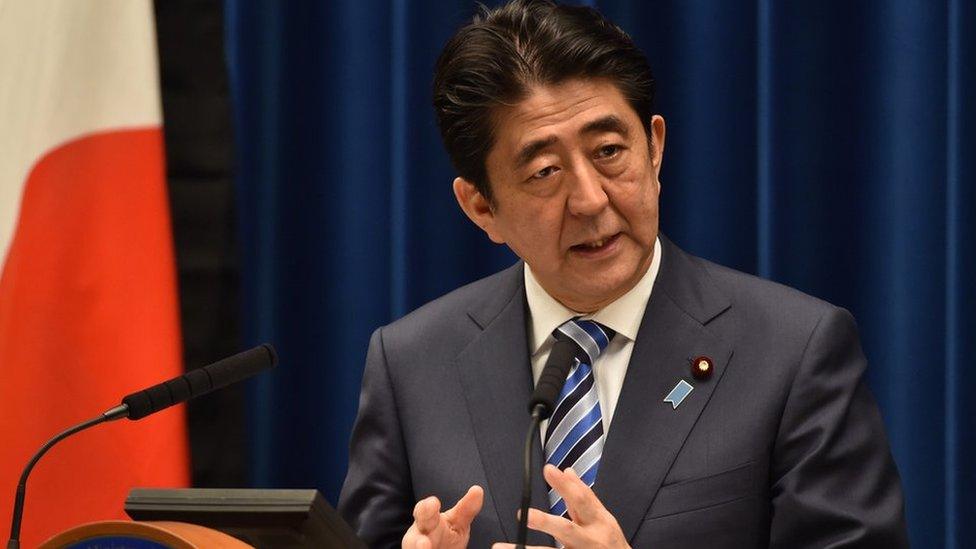Japan faces up to China's long shadow
- Published
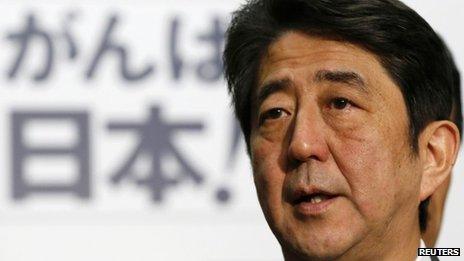
Japan's Prime Minister Shinzo Abe talked tough on China before the election
Some Chinese commentators are suggesting that Beijing is actually quite happy that the Liberal Democrats (LDP) are back in power in Tokyo.
The argument goes something like this - dealing with Shinzo Abe will be much easier than the erratic and chaotic Democratic Party of Japan.
The LDP and the Chinese Communist Party (CCP) are two old parties who know and understand each other. It was, after all, an LDP Prime Minister, Kakuei Tanaka, who opened relations with Beijing in 1972.
But this region has changed enormously since the 1970s. Then, Japan was Asia's economic powerhouse; China was still dirt-poor and mired in the chaos of the Cultural Revolution.
Today, Japan is a declining power that, two years ago, lost its position as number one in Asia to China for the first time in more than a century.
Japanese people are not enjoying this new reality, and they are becoming increasingly nervous about Beijing's growing power and assertiveness.
Physical threat
Kuni Miyake, a close friend and one-time adviser to Shinzo Abe, says 2012 will be remembered as "the first time that Japanese people felt a physical threat to their territory since 1945".
"The majority of Japanese people are now sick and tired of Chinese behaviour. In the past, China got mad when we did something wrong in their eyes. Then, they pressure us and we back off. But this didn't happen in 2012."
Mr Miyake, who is now the president of Tokyo's Foreign Policy Institute, said that when people look back at this year they will see it as the point at which Japan decided enough is enough.
In his first news conference after Sunday's election Shinzo Abe certainly sounded like a man who is in no mood to compromise with Beijing.
Speaking of the disputed Senkaku/Diaoyu Islands, Mr Abe said: "We own and actively control the islands, about this point there is no room to negotiate."
He then accused China of using economic warfare to try to pressure Japan into negotiating.
"When Japanese companies or people are harmed in China then this is indeed against international rules," he said.
"It's necessary to tell both China and international society that we won't tolerate this."
During the election campaign, Mr Abe's party suggested it might move to build a port and other facilities on the disputed islands to reinforce Japan's control.
If his government did so it would almost certainly provoke a much deeper crisis with China.
Mr Miyake says we should not take such rhetoric too seriously.
"Shinzo Abe is a pragmatic and realistic politician," he said.
"He has been in campaign mode over the last few months. Now he is in governing mode. I don't think you will hear the campaign rhetoric being repeated."
Aggression
Hitoshi Tanaka, the chairman of the Institute for International Strategy in Tokyo, is more worried.
He says more needs to be done by Japan's new government to engage with China.
"China is getting much more aggressive in its external relations," he says.
"China's military is getting bigger and bigger. There may be a risk of military confrontation if both countries do not behave in the right way.
"I would very much like to see a much stronger communication between Japan and China. The key to everything is to make sure we talk to each other."
Japanese analysts agree that the island dispute has the potential to turn much more serious if China persists in escalating the dispute on the sea and in the air.
"We are the status quo power," says Mr Miyake.
"If they [China] are determined to change the status quo, then probably we are in big trouble."
Earlier this year, in the South China Sea, Beijing used similar tactics to force the Philippine navy off an atoll called the Scarborough Shoal.
But Japan is not the Philippines. It has a large modern and powerful navy and air force.
If the new Chinese leadership under Xi Jinping is determined to try and do the same with the Senkaku/Diaoyu Islands there could be real trouble ahead.
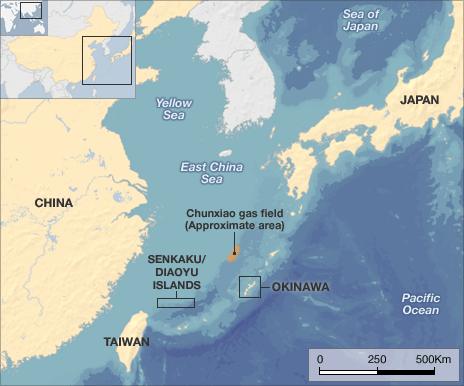
The Senkaku/Diaoyu issue complicates efforts by Japan and China to resolve a dispute over oil and gas fields in the East China Sea that both claim
- Published17 December 2012
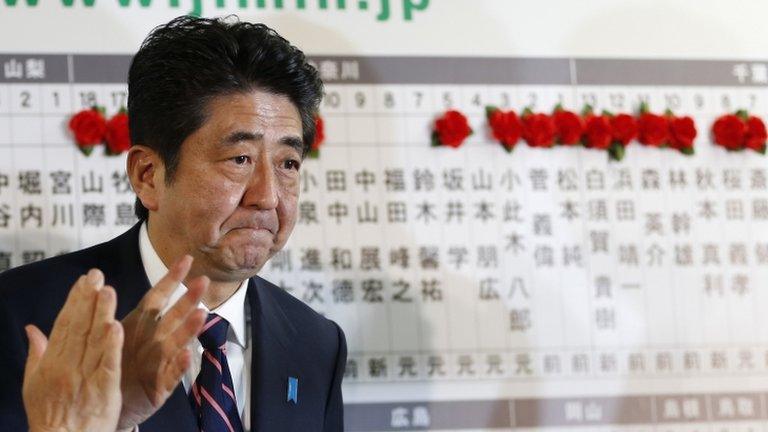
- Published17 December 2012

- Published10 November 2014
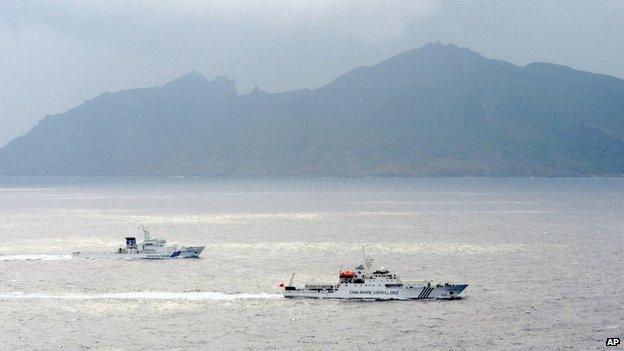
- Published13 November 2012
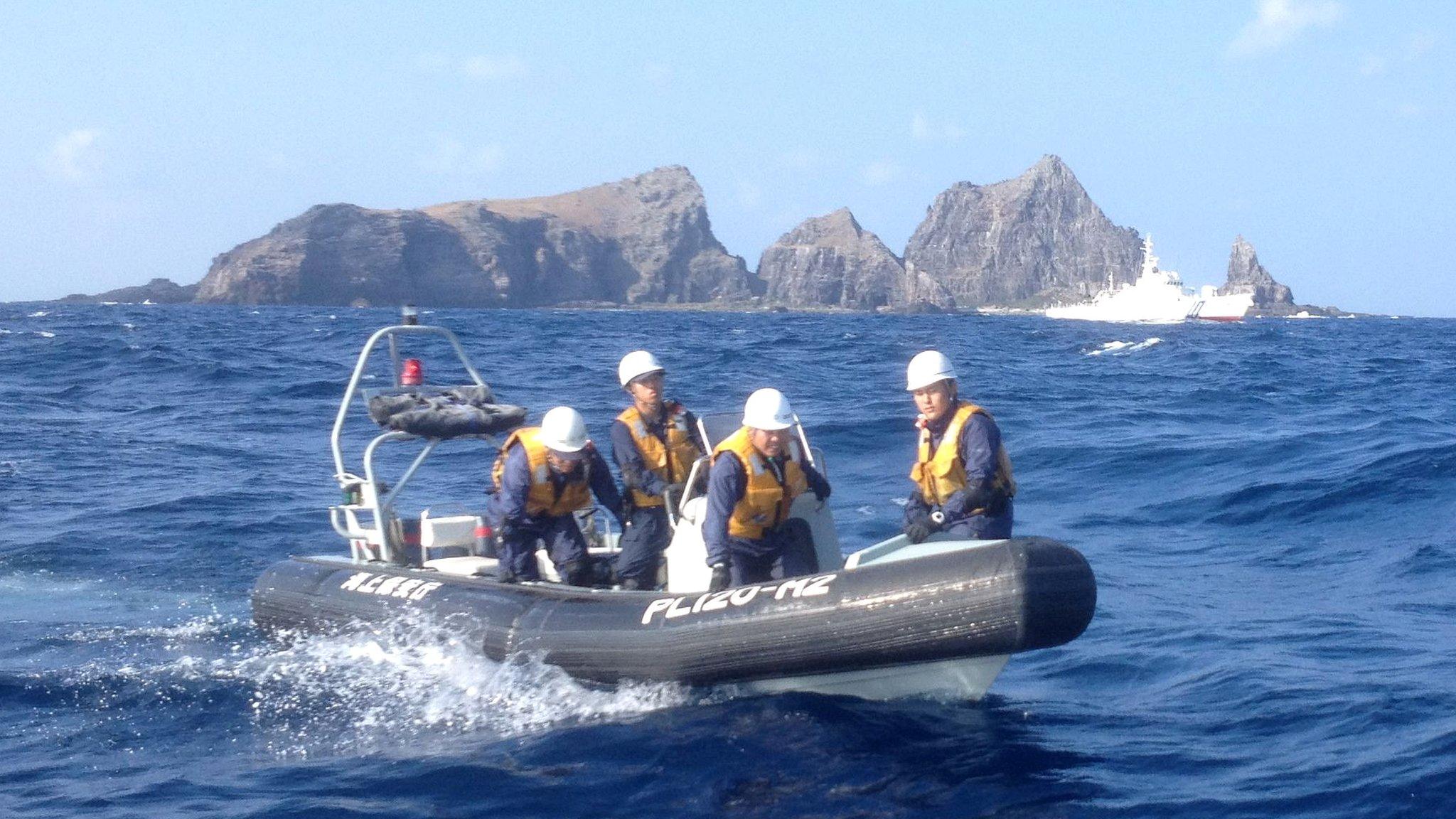
- Published31 October 2012
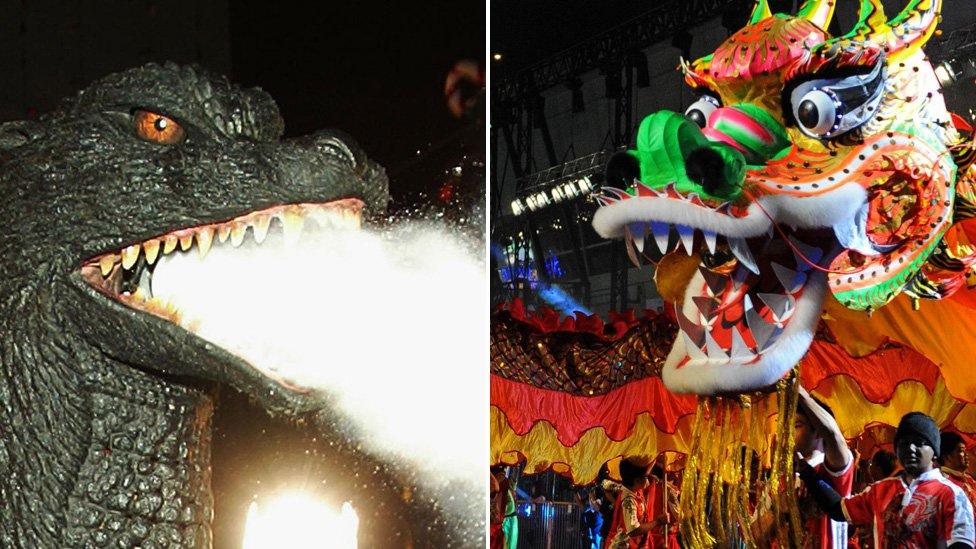
- Published23 October 2017
